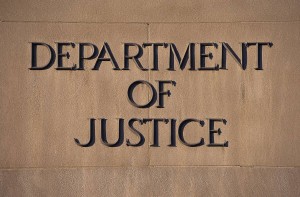 The U.S. Department of Justice announced Friday charges against 10 defendants in multiple states who fraudulently diverted money from victims’ bank accounts into accounts they or co-conspirators controlled.
The U.S. Department of Justice announced Friday charges against 10 defendants in multiple states who fraudulently diverted money from victims’ bank accounts into accounts they or co-conspirators controlled.
The defendants also recruited “money mules” by using spoofed email addresses, bank account takeovers, and similar fraudulent methods.
The schemes were designed to deceive victims into believing they were making legitimate payments.
“These defendants defrauded numerous individuals, companies, and federal programs, resulting in millions of dollars in financial losses to vital federal programs meant to provide assistance to those in need,” said U.S. Attorney Ryan K. Buchanan for the Northern District of Georgia.
 “In the District of South Carolina, we’ve seen a marked increase in email scams, identity theft, and related money laundering schemes,” said U.S. Attorney Adair Boroughs for the District of South Carolina.
“In the District of South Carolina, we’ve seen a marked increase in email scams, identity theft, and related money laundering schemes,” said U.S. Attorney Adair Boroughs for the District of South Carolina.
The prosecutions announced Friday include alleged schemes that fraudulently diverted payment:
For example, officials stated that fraudulent emails from accounts resembling those associated with actual hospitals were allegedly sent to public and private health insurance programs requesting that future reimbursements be sent to new bank accounts that did not belong to the hospitals.
Unwittingly, five state Medicaid programs, two Medicare Administrative Contractors, and two private health insurers allegedly were deceived into making payments to the defendants and their co-conspirators instead of depositing the reimbursement payments into bank accounts belonging to the hospitals.
 The defendants and their co-conspirators allegedly laundered the proceeds fraudulently obtained from these health care benefit plans and other victims
The defendants and their co-conspirators allegedly laundered the proceeds fraudulently obtained from these health care benefit plans and other victims
This included withdrawing large amounts of cash, layering them through other accounts they or their co-conspirators opened in the names of false and stolen identities and shell companies, transferring them overseas, and purchasing luxury goods and exotic automobiles, according to federal officials.
This week, charges were unsealed against six defendants in the Northern District of Georgia and one in the District of South Carolina.
In addition, one defendant was previously charged in the Northern District of Georgia, and one was previously charged in the Eastern District of Virginia.
A third defendant previously charged in the Northern District of Texas has entered a guilty plea and been sentenced.
The alleged schemes caused more than $4.7 million in losses to Medicare, Medicaid, and private health insurers and $6.4 million in losses to other federal government agencies, private companies, and individuals, such as elderly romance fraud victims who were deceived into sending hundreds of thousands of dollars to the defendants and their co-conspirators.
The seven defendants against whom charges were unsealed this week are:
- Biliamin Fagbewesa, 31, of Columbia, South Carolina, was indicted in the District of South Carolina on November 8 with three counts of money laundering and one count of unlawful procurement of naturalization. According to court documents, Fagbewesa allegedly used a stolen identity to open bank accounts in the name of a shell company to receive more than $1.4 million of proceeds fraudulently diverted from a state Medicaid program, a hospital, and others, approximately $583,000 of which Fagbewesa laundered and spent on, among other things, Fagbewesa’s rental payments. If convicted of the top count, he faces a maximum penalty of 20 years in prison.
- Patrick Ndong-Bike, 32, of Atlanta, Georgia, was indicted in the Northern District of Georgia on Nov. 15 with four counts of money laundering. According to court documents, Ndong-Bike allegedly used false identities to open bank accounts in the names of those identities and shell companies to receive approximately $2.4 million of proceeds of BEC fraud and other similar schemes, approximately $679,000 of which Ndong-Bike laundered and spent, including proceeds that were fraudulently diverted from Medicare and several private companies.
- He faces up to 20 years in prison if convicted of the top count.
- Desmond Nkwenya, 35, of Atlanta, Georgia, was charged by indictment in the Northern District of Georgia on Nov. 15 with two counts of money laundering and one count of bank fraud.
- According to court documents, Nkwenya allegedly used false identities to open bank accounts in the names of those identities and shell companies to receive approximately $308,000 derived from BEC fraud and other similar schemes, all of which Nkwenya laundered. Nkwenya also allegedly received approximately $119,000 as a result of a fraudulent Paycheck Protection Program loan application. If convicted of the top count, he faces a maximum penalty of 30 years in prison.
- Cory Smith, 29, of Atlanta, Georgia was charged by indictment in the Northern District of Georgia on Nov. 15 with three counts of money laundering.
- According to court documents, Smith allegedly opened a bank account in the name of a false identity and used that account receive and launder more than $57,000 fraudulently diverted from a private company in a BEC scheme. If convicted of one of the counts, he faces a maximum penalty of 20 years in prison.
- Chisom Okonkwo, 26, of Atlanta, Georgia, was charged by indictment in the Northern District of Georgia on Nov. 15 with three counts of wire fraud, two counts of aggravated identity theft, and six counts of money laundering.
- According to court documents, Okonkwo allegedly used stolen and false identities to open accounts in the names of shell companies that received approximately $830,000 in proceeds from BEC fraud and other similar schemes, approximately $535,000 of which Okonkwo allegedly laundered through a variety of transactions, including withdrawing large amounts in cash. Okonkwo also allegedly paid for a luxury car through a fraudulent loan she obtained in the name of a stolen identity. She faces up to 20 years in prison if convicted of the top count.
- Olugbenga Abu, 45, of Atlanta, Georgia, was charged by indictment in the Northern District of Georgia on Nov. 15 with one count of bank fraud, one count of wire fraud, and four counts of money laundering. According to court documents, Abu allegedly used a false identity to open a bank account that received and laundered more than $95,000 of BEC fraud proceeds. Abu also allegedly obtained a fraudulent loan of more than $341,000 and fraudulently sought an additional $65,000 of loan proceeds from the Small Business Administration (SBA). If convicted of the top count, he faces a maximum penalty of 30 years in prison.
- Trion Thomas, 50, of Stone Mountain, Georgia, was charged by information in the Northern District of Georgia on Sept. 21 with conspiracy to commit money laundering. According to court documents, Thomas allegedly received and laundered $93,000 of Medicare payments that had been fraudulently diverted because of a BEC scheme that targeted Medicare. If convicted, he faces a maximum penalty of 20 years in prison.
The three defendants previously charged are:
- Malachi Mullings, 29, of Sandy Springs, Georgia, was charged in the Northern District of Georgia on Feb. 22 with conspiracy to commit money laundering and seven substantive money laundering offenses. According to court documents, Mullings used numerous bank accounts opened in the name of a shell company, The Mullings Group LLC, to receive and launder millions of dollars derived from BEC schemes targeting a health care benefit program, private companies, and individual romance scam victims.
- In one instance, Mullings laundered $310,000 fraudulently diverted from a state Medicaid program intended as hospital reimbursement.
- In another instance, Mullings received $260,000 from a romance scam perpetrated on an elderly victim, which he subsequently used to purchase a Ferrari. He faces up to 20 years in prison if convicted of the top count.
- Adewale Adesanya, 39, of Jonesboro, Georgia, pleaded guilty in the Northern District of Texas on June 2 to conspiracy to commit money laundering and use of a false passport. According to court documents, Adesanya used a false passport in the name of “Timi Graig” to create a shell company for the purpose of opening bank accounts to receive and launder more than $1.5 million obtained from BEC schemes targeting two state Medicaid programs, the IRS, the SBA, a private company, and two elderly romance scam victims. On Sept. 15, Adesanya was sentenced to four years in prison.
- Sauveur Blanchard Jr., 49, of Richmond, Virginia, was charged by indictment in the Eastern District of Virginia on Sept. 8, 2021, with conspiracy to commit money laundering and four substantive money laundering offenses. According to court documents, Blanchard allegedly opened bank accounts in the names of shell companies to receive and launder more than $55,000 in Medicaid payments intended for a hospital but fraudulently diverted to Blanchard’s account. Trial in this matter is currently scheduled for Jan. 9, 2023. If convicted of any of the counts, he faces up to 20 years in prison.
In each case, a federal district court judge will determine any sentence after considering the U.S. Sentencing Guidelines and other statutory factors.
The Fraud Section leads the Criminal Division’s efforts to combat healthcare fraud through the Health Care Fraud Strike Force Program.
Since March 2007, this program, comprised of 15 strike forces operating in 24 federal districts, has charged more than 4,200 defendants who collectively have billed the Medicare program for more than $19 billion.
In addition, the Centers for Medicare & Medicaid Services, working in conjunction with the Office of the Inspector General for the Department of Health and Human Services, are taking steps to hold providers accountable for their involvement in health care fraud schemes. More information can be found at https://www.justice.gov/criminal-fraud/health-care-fraud-unit.
An indictment and an information are merely allegations. All defendants are presumed innocent until proven guilty beyond a reasonable doubt in a court of law.

